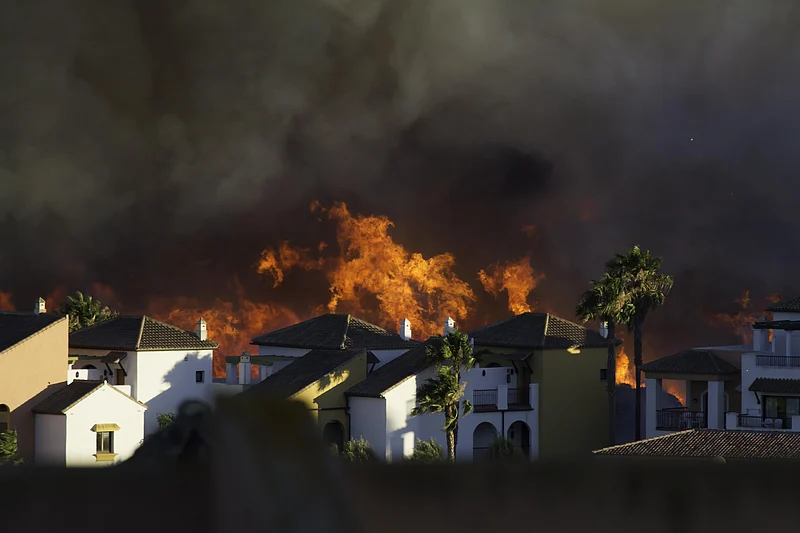Get Healthy!

- Cara Murez
- Posted August 15, 2022
Heat, Smoke & the Heart: Wildfires Cause Cardiac Crises
While most people know that breathing in wildfire smoke isn't good for respiratory health, they may not know that unclean air is also problematic for the heart.
Individuals with underlying cardiovascular disease risk factors may also be at risk from the smoky air impacting their heart conditions, according to the American Heart Association (AHA).
"Wildfire smoke contains a lot of pollutants including fine, microscopic particles linked to cardiovascular risk,"said Fire Chief of the Memphis (Tenn.) Fire Department and American Heart Association volunteer Gina Sweat. "As the fires spread, they aren't just burning trees and woodlands -- they're also igniting buildings, cars and recreational vehicles, entire community infrastructures. Many of these fires are massive and burning out of control, with that contaminated smoke traveling miles beyond the immediately affected area."
The AHA noted that studies done after wildfires in California in recent years linked smoke exposure to an increased risk of sudden cardiac arrest, as well as a higher volume of visits to local emergency rooms for cardiovascular disease-related causes.
A 2020 study found that exposure to heavy smoke during wildfires raised the risk of out-of-hospital cardiac arrests up to 70%, according to the AHA. That study found an elevated risk among men and women, adults aged 35 to 64 years, and in poor communities.
Meanwhile, a 2018 study found that wildfire smoke exposure was associated with increased rates of emergency room visits for ischemic heart disease, irregular heart rhythm, heart failure, pulmonary embolism and stroke. Emergency department visits increased 42% for heart attacks and 22% for ischemic heart disease within a day of exposure to dense wildfire smoke.
Sweat advises reducing exposure to wildfire smoke by staying indoors with doors and windows closed, unless you're in an area of immediate danger and need to evacuate. Use high-efficiency air filters in air-conditioning systems. Avoid exertion, keep well hydrated and consider seeking other shelter if your home does not have an air conditioner and it's too warm to stay inside, she added.
Always follow local law enforcement orders and prepare early for evacuation. Being prepared may also help protect your heart because it can reduce mental and physical stress.
Other precautions include being aware of the signs of a heart attack or stroke.
Call 911 if you or someone you know is experiencing these symptoms. Know and be able to perform CPR on someone experiencing a cardiac arrest because it may be more difficult to get outside help because of road closures.
Wildfires in rural areas can be especially challenging because of longer emergency response times and fires that may have burned out of control longer before being noticed.
"Although it's hard to say where wildfires may break out, be alert and prepared all around during high-risk seasons such as the fall and even the summer with our extreme heat waves,"Sweat said in an AHA news release. "Having an emergency preparedness plan is always a good idea, whether you're dealing with wildfires, earthquakes, hurricanes or floods. Especially if you have an existing health condition, you'll want to have a list of your medications and the numbers for your health care clinicians and pharmacies in case you need to evacuate your home."
More information
The U.S. Environmental Protection Agency has more on wildfire smoke's impact on health.
SOURCE: American Heart Association, news release, Aug. 11, 2022
